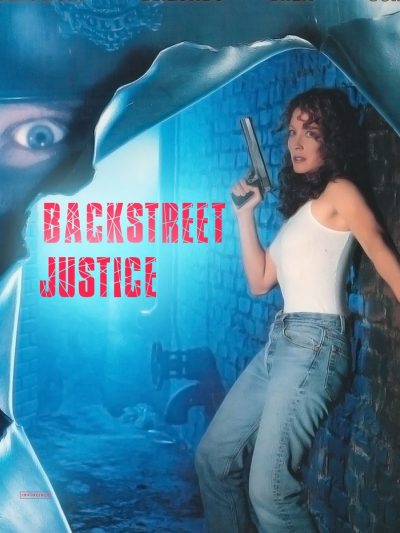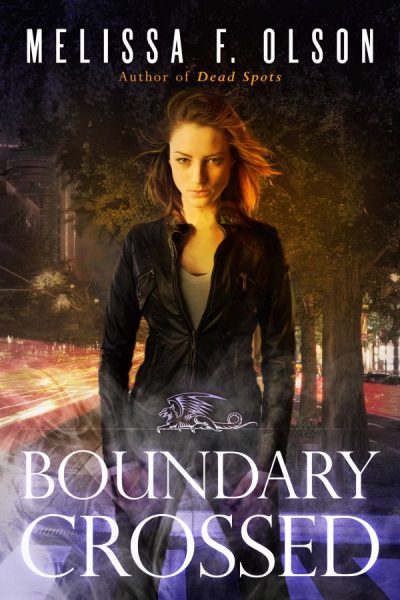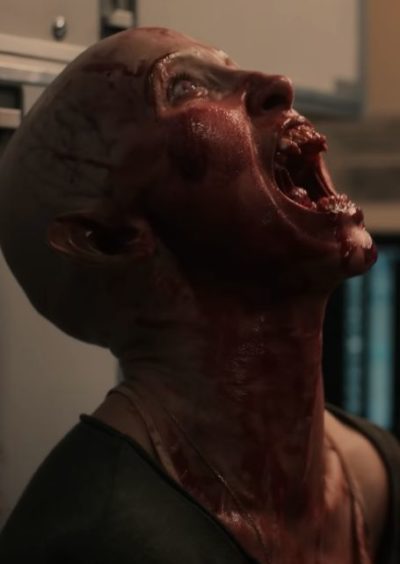★★★★
“The name’s Widow. Black Widow…”
 I said it in my review of Captain Marvel, but it probably bears repeating here. I’m basically completely unfamiliar with the Marvel Cinematic Universe. Avengers: Infinity War? It may have become the biggest film in cinema history, but I’ve never seen it, and that’s par for the course. Of the 13 MCU films released since the beginning of 2015, I have watched just three. So if this required any prior knowledge, or information not present in the actual movie, I was going to be hosed. Another concern coming in, stemmed from one of those three movies: Captain Marvel. It was the epitome of the dumb comic-book film, and more a chore than a pleasure.
I said it in my review of Captain Marvel, but it probably bears repeating here. I’m basically completely unfamiliar with the Marvel Cinematic Universe. Avengers: Infinity War? It may have become the biggest film in cinema history, but I’ve never seen it, and that’s par for the course. Of the 13 MCU films released since the beginning of 2015, I have watched just three. So if this required any prior knowledge, or information not present in the actual movie, I was going to be hosed. Another concern coming in, stemmed from one of those three movies: Captain Marvel. It was the epitome of the dumb comic-book film, and more a chore than a pleasure.
This had been long-delayed too, and that’s never a good sign, though it’s hard to blame the makers in this case. It was originally slated for release in May 2020, but of course, COVID-19 scuppered that, causing several reschedulings. The split release, simultaneously coming out in theatres and on streaming service Disney+, also came as a bit of a red flag. That’s because I’ve found films which debuted on streaming have largely been underwhelming. From Mulan through Wonder Woman 1984, as well as non-GWG entries like Godzilla vs. Kong and Mortal Kombat, the results haven’t impressed me. Could Black Widow buck the trend and deliver the summer box-office blockbuster which never happened last year? Well, if you counted the stars at the top, you’ll probably have worked out that it did, more or less avoiding the potential pitfalls.
However, it has also become the first four-star film not to get our seal of approval. Put simply, while it delivered 2+ hours of very solid entertainment, I have no interest in seeing it again. To me, that is a key element in awarding a seal; the film must be one capable of getting (and standing up to) repeat viewings. This didn’t – though again, I want to stress I’d be more than happy to go see the future installments, which seem highly likely to follow. I think it was mostly a lack of emotional involvement which capped my appreciation for it. While a fine, well-crafted spectacle, that does work as a stand-alone film, I still felt like I had arrived in the middle of the show. For example, a relatively brief explanation of her origins in a nineties Russian sleeper cell is followed by “21 years later,” and that’s an awful lot of water under the bridge.
Clearly, a lot of significant stuff had happened in that time. Piecing the parts together, it appears the two “sisters” from the sleeper cell, Natasha Romanoff (Johansson) and Yelena Belova (Pugh), became part of the “Red Room” program to create super-soldiers. Natasha defected back to the West to become part of SHIELD, and killed Dreykov, the man in charge. But Yelena remained in the system, until an encounter with a gas that undid her mind-control. She sent a batch of the gas to Natasha, which brought her into the sights of Dreykov, who was not so dead as previously assumed. He is very keen to get the antidote to his programming back under control, but Natasha and Yelena decide to take the fight to him instead. However, they need to start by finding out the Red Room’s location, which will involve an awkward “family re-union” with their pseudo-Mom (Weisz) and crypto-Dad (Harbour).
 I was talking to Dieter about the film, which he had already seen (in the cinema, the mad, impetuous man!). He said it resembled “a classical spy-ploitation movie, like Bond movies might look today, if there hasn’t been that strong change in style and towards more realism with the Craig era.” That raised an eyebrow for me, and certainly didn’t seem a typical Marvel film approach. But having now seen it myself, I can definitely see where that’s coming from. In particular, I felt that Dreykov (played by British heavy Ray Winstone) would have fitted right in as a villain from that ‘classic Bond’ era. His lair makes the one inside a volcano from You Only Live Twice look like a doll’s house, and he even makes the classic, “Now you are helpless in my power, let me over-explain things to you” mistake. Notably, there’s a scene early on where Natasha is watching Moonraker on her lap-top, so I very much suspect none of this is by accident.
I was talking to Dieter about the film, which he had already seen (in the cinema, the mad, impetuous man!). He said it resembled “a classical spy-ploitation movie, like Bond movies might look today, if there hasn’t been that strong change in style and towards more realism with the Craig era.” That raised an eyebrow for me, and certainly didn’t seem a typical Marvel film approach. But having now seen it myself, I can definitely see where that’s coming from. In particular, I felt that Dreykov (played by British heavy Ray Winstone) would have fitted right in as a villain from that ‘classic Bond’ era. His lair makes the one inside a volcano from You Only Live Twice look like a doll’s house, and he even makes the classic, “Now you are helpless in my power, let me over-explain things to you” mistake. Notably, there’s a scene early on where Natasha is watching Moonraker on her lap-top, so I very much suspect none of this is by accident.
A couple of other elements also seem to echo Bond. Natasha has a somewhat Q-like “fixer”, Mason (O-T Fagbenle), who keep her supplied and gets irritated by her more outrageous demands. Dreykov has a monstrous and hyperviolent sidekick; despite her gender, she’s not unlike Jaws, who appears in the Moonraker clip mentioned above. Like him, she is won over to the side of good by kindness. There’s also a dry humour present, which does hark back to the days of Roger Moore. Much of this comes from Harbour’s character, but Yelena also has a self-effacing wit. For example, she rags on Natasha about her fight poses, though inevitably, subsequently finds herself in the same posture. After the dour Captain Marvel, a little appreciation of the underlying silliness which is embodied by the comic-book genre, goes a surprisingly long way.
Indeed, I would not mind if, as the post-credit scene implies, Yelena becomes Black Widow going forward. [Though that scene was all but entirely lost on me, I believe a change is needed, due to things which happened in films I haven’t watched… He said vaguely!] Pugh, whom we enjoyed seeing on this site in Fighting With My Family, brings a no-nonsense approach to her character that I really liked. Johannson may, despite her complaints, have been getting paid the big bucks here, but I’d rather see Pugh step into the PVC body-suit going forward. Admittedly, I’d also rather see more genuine stunt-work and less obvious CGI. While it’s understandable at some points, e.g. the climax, there were times where it felt like a character couldn’t walk down a corridor without it being rendered against a green screen. I think I may be shouting at clouds in this department, however…
All told though, it’s the first film I’ve seen in a long time which made me at least somewhat sorry I hadn’t seen it at the movies. It has been about 20 months since my last cinema outing, and I was beginning to wonder if I’d ever again miss the theatrical experience. Black Widow has proven otherwise, so we’ll see if this does translate into an actual movie-going experience down the road.
Dir: Cate Shortland
Star: Scarlett Johansson, Florence Pugh, Rachel Weisz, David Harbour
 No-one does low-budget hyperviolence like the Japanese. Whether it’s pseudo-snuff like Guinea Pig: Flower of Flesh and Blood, or more fantastical entries such as Mutant Girls Squad, there have likely been more memorable entries from that country than any other. Note my use of the word “memorable”, as distinct from “good”, since they aren’t the same. I’d be hard pushed to recommend this to anyone, unless I knew they were predisposed to microbudget horror of a particularly savage type. I probably won’t ever watch it again. But I have to say this: I will remember it. As will Chris, who came in for the denouement, and was literally jaw-dropped by what she saw. I’m not going to spoil it, so apologies if some of what follows is a little vague.
No-one does low-budget hyperviolence like the Japanese. Whether it’s pseudo-snuff like Guinea Pig: Flower of Flesh and Blood, or more fantastical entries such as Mutant Girls Squad, there have likely been more memorable entries from that country than any other. Note my use of the word “memorable”, as distinct from “good”, since they aren’t the same. I’d be hard pushed to recommend this to anyone, unless I knew they were predisposed to microbudget horror of a particularly savage type. I probably won’t ever watch it again. But I have to say this: I will remember it. As will Chris, who came in for the denouement, and was literally jaw-dropped by what she saw. I’m not going to spoil it, so apologies if some of what follows is a little vague.




 Halle Berry was born the same year I was. There is, however, just one of us that is capable of convincingly playing the role of a mixed martial artist. To give you another yardstick, the lead in this was originally going to go to Mrs. Ryan Reynolds, Blake Lively (
Halle Berry was born the same year I was. There is, however, just one of us that is capable of convincingly playing the role of a mixed martial artist. To give you another yardstick, the lead in this was originally going to go to Mrs. Ryan Reynolds, Blake Lively ( It’s difficult to put a finger on exactly what makes this so flat and uninteresting. The individual elements are fine – or, at least, don’t stand out as being particularly troublesome. However, the end product failed to hold my attention, particularly over the second half. It may be a case of the whole being considerably less than the sum of the parts, though if there was a single factor, I’d have to point at the story. This is probably too complicated for its own good, especially in a 90-minute movie: less would likely have been more.
It’s difficult to put a finger on exactly what makes this so flat and uninteresting. The individual elements are fine – or, at least, don’t stand out as being particularly troublesome. However, the end product failed to hold my attention, particularly over the second half. It may be a case of the whole being considerably less than the sum of the parts, though if there was a single factor, I’d have to point at the story. This is probably too complicated for its own good, especially in a 90-minute movie: less would likely have been more.





















 This was among the very last of the “pinky violence” films made by the
This was among the very last of the “pinky violence” films made by the  For most films. I’ve usually got a fairly good idea of what is likely to be the final review grade, inside about 30 minutes. It may drift half a star up or down, but it’s relatively rare for there to be more variation than that. This would be one such case, which started off as underwhelming, went through a brief surge of “Oh, yeah – I get it!” in the middle, before returning to the mediocrity from whence it came. At various points, this could have been anywhere between ★½ and (although briefly) ★★★★. Well done, I guess?
For most films. I’ve usually got a fairly good idea of what is likely to be the final review grade, inside about 30 minutes. It may drift half a star up or down, but it’s relatively rare for there to be more variation than that. This would be one such case, which started off as underwhelming, went through a brief surge of “Oh, yeah – I get it!” in the middle, before returning to the mediocrity from whence it came. At various points, this could have been anywhere between ★½ and (although briefly) ★★★★. Well done, I guess?